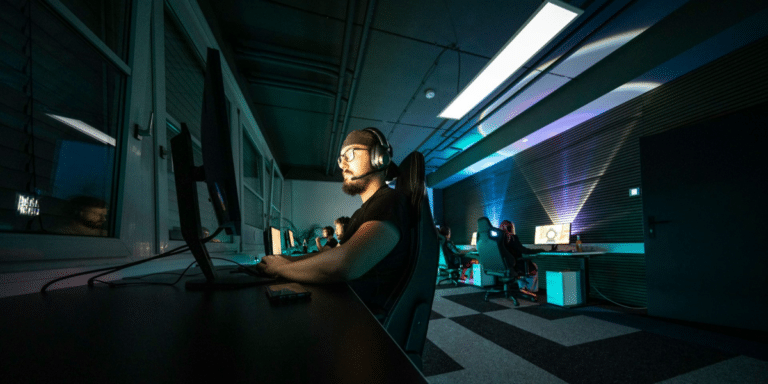Image commercially licensed from: Unsplash
Are you a parent who worries about your child’s safety but is unsure whether tracking their location is the right approach? Today, we’re diving into the importance of open communication with children about the reasons for tracking their whereabouts. Join us as we explore how this can foster trust, enhance safety measures, and empower both parents and children in an ever-changing world. Get ready to unlock valuable insights that will reshape your perspective on this crucial topic!
Introduction to tracking children’s location
Tracking children’s location has become a popular and controversial topic in recent years. With the advancement of technology, parents now have the ability to monitor their child’s whereabouts through various means such as GPS devices, phone tracking apps, and even microchip implants. While some may argue that tracking children is an invasion of privacy and can lead to trust issues between parents and their children, others view it as a necessary safety measure in today’s world kids security.
Benefits of tracking children’s location
Tracking a child’s location can be a controversial topic, with many parents and children having different opinions on its necessity. However, when done in an open and honest manner, tracking their location can have numerous benefits for both the child and the parent.
Safety and Security:
One of the main benefits of tracking a child’s location is ensuring their safety and security. With the rise of technology, there are now various devices such as GPS trackers or phone apps that allow parents to keep track of their child’s whereabouts.
Promotes Responsibility:
When children are aware that they are being tracked, it promotes a sense of responsibility as they know that their actions are being monitored. This can encourage them to make better decisions about where they go and who they interact with.
Importance of open communication with children about tracking their location
Open communication is crucial in all aspects of parenting, especially when it comes to the safety and well-being of our children. In today’s digital age, tracking your child’s location has become a common practice for many parents. However, this can often raise concerns about invasion of privacy or lack of trust between parents and children. That is why it is essential to have open communication with your child about the reasons for tracking their location.
First and foremost, discussing with your child why you want to track their location helps build trust and understanding between you and your child. It allows them to see that you are not doing it out of suspicion or control but rather out of care and concern for their safety.
How to have open and honest conversations with children about tracking their location?
Having open and honest conversations with children about tracking their location is crucial for building trust and ensuring their safety. As a parent or guardian, it is important to have regular discussions with your child about the reasons for tracking their location and how it can benefit them.
To start off, it is important to establish a safe and comfortable environment for this conversation. Choose a time when both you and your child are calm and relaxed, without any distractions.
Risks and concerns associated with tracking children’s location
Tracking children’s location has become increasingly popular in today’s digital age. With the use of GPS technology and tracking apps, parents can easily keep tabs on their child’s whereabouts at all times. While this may bring a sense of security for parents, there are also risks and concerns associated with tracking children’s location.
One major concern is the potential invasion of privacy. Children have the right to privacy, just like adults do. Constantly tracking their every move may make them feel like they have no autonomy or control over their own lives. This can lead to feelings of resentment and mistrust towards their parents. It is important for parents to establish boundaries and communicate openly with their child about why they are being tracked and how often.
Alternative methods for ensuring child safety without tracking their location
In today’s digital age, many parents have turned to location tracking technology as a means of ensuring the safety of their children. While this may seem like an effective solution, it is important for parents to also consider alternative methods for keeping their children safe without constantly monitoring their location.
One alternative method is to establish open and honest communication with your child about the reasons for tracking their location. It is crucial to have regular conversations with your child about the importance of safety and how tracking their location can help in case of an emergency. By involving your child in the decision-making process and explaining why you are using a tracking device, they will feel more comfortable and understand that it is for their own well-being.
Conclusion: Finding a Balance Between Safety and Trust in Parent-Child Relationships
In today’s fast-paced and technology-driven world, it is natural for parents to worry about the safety of their children. With the rise of social media, online predators, and other potential dangers, tracking a child’s location has become a common practice among parents. However, this can often lead to conflicts between parents and children as it can be perceived as an invasion of privacy and lack of trust.
Finding a balance between safety and trust in parent-child relationships is crucial. As much as parents want to protect their children, it is important to respect their privacy and involve them in the decision-making process. With open communication, clear boundaries, and mutual trust, tracking a child’s location can be a useful tool in keeping them safe without compromising the parent-child relationship. Remember that communication is key, and by having honest conversations with your child, you can build a strong foundation of trust and understanding for years to come.
Published By: Aize Perez








